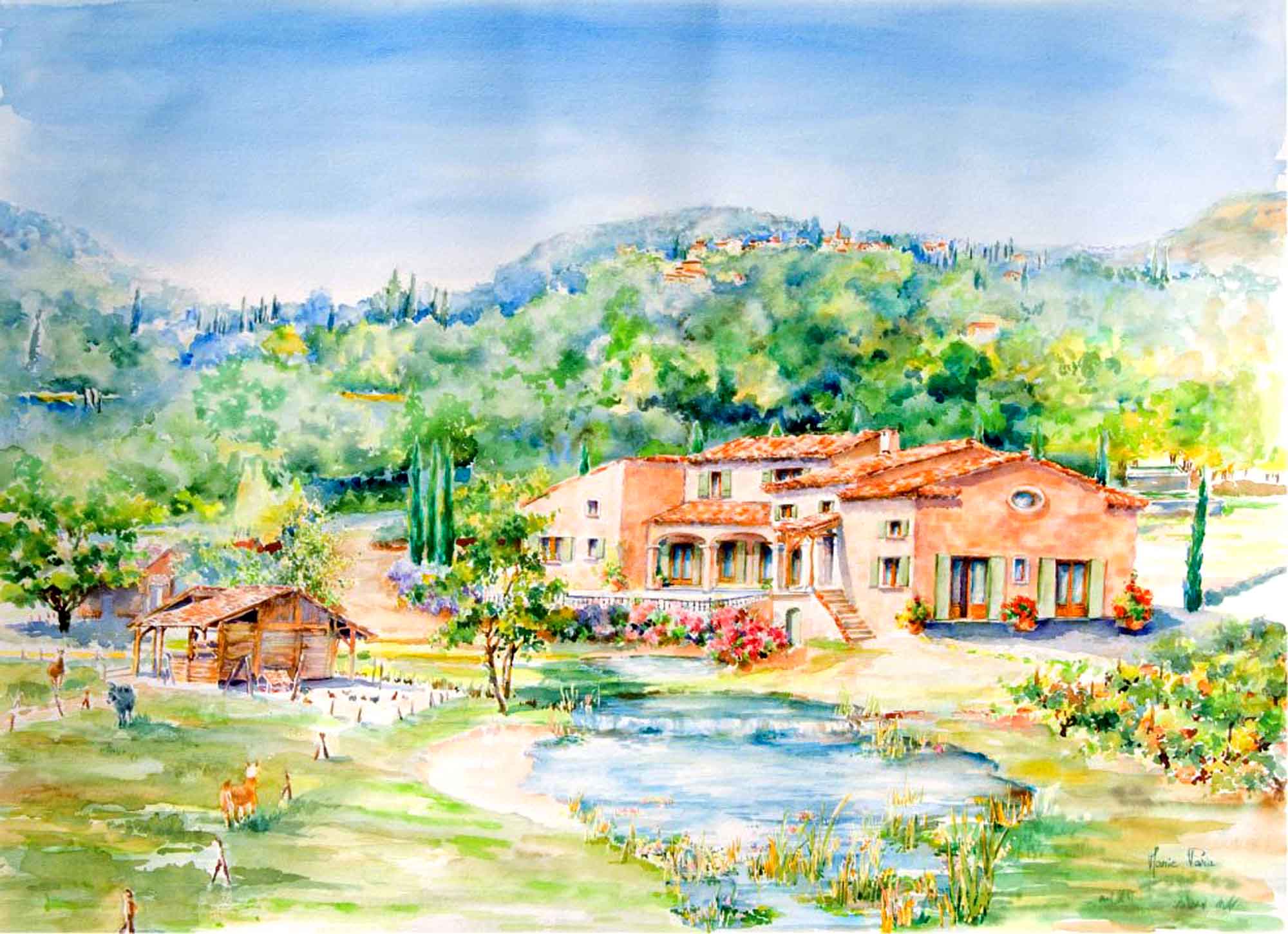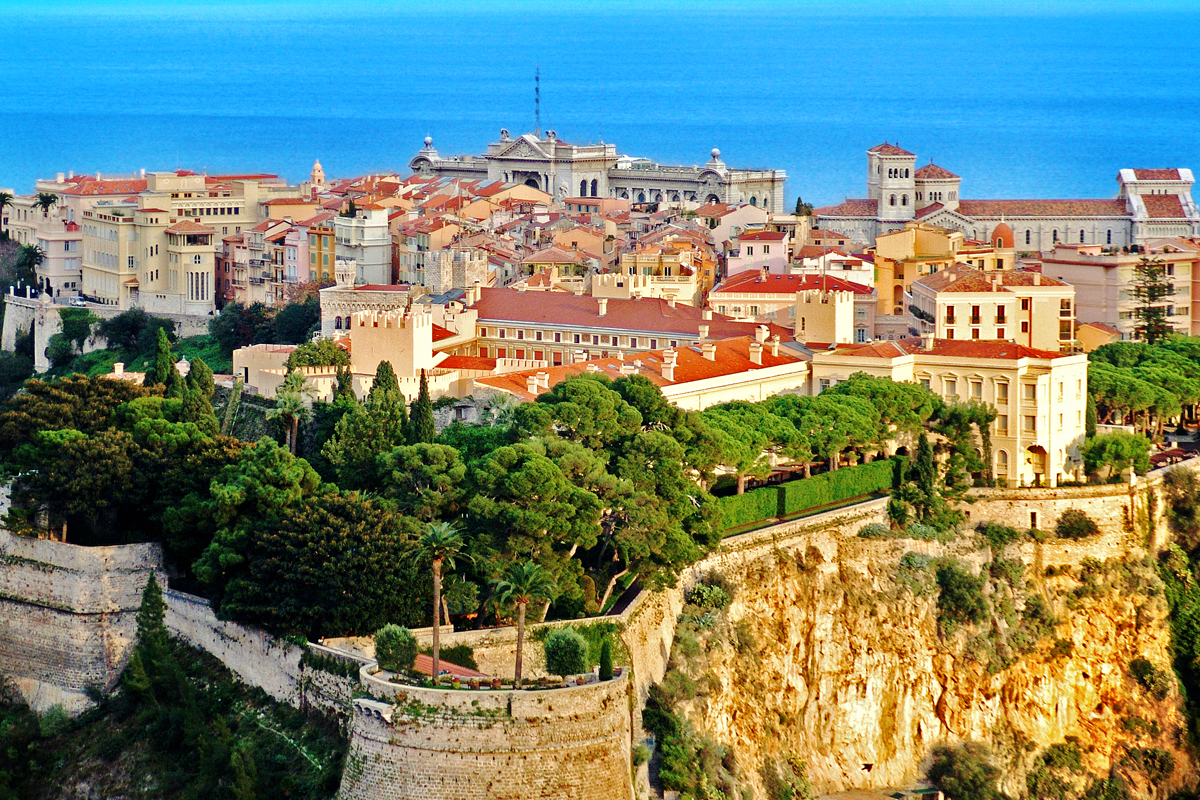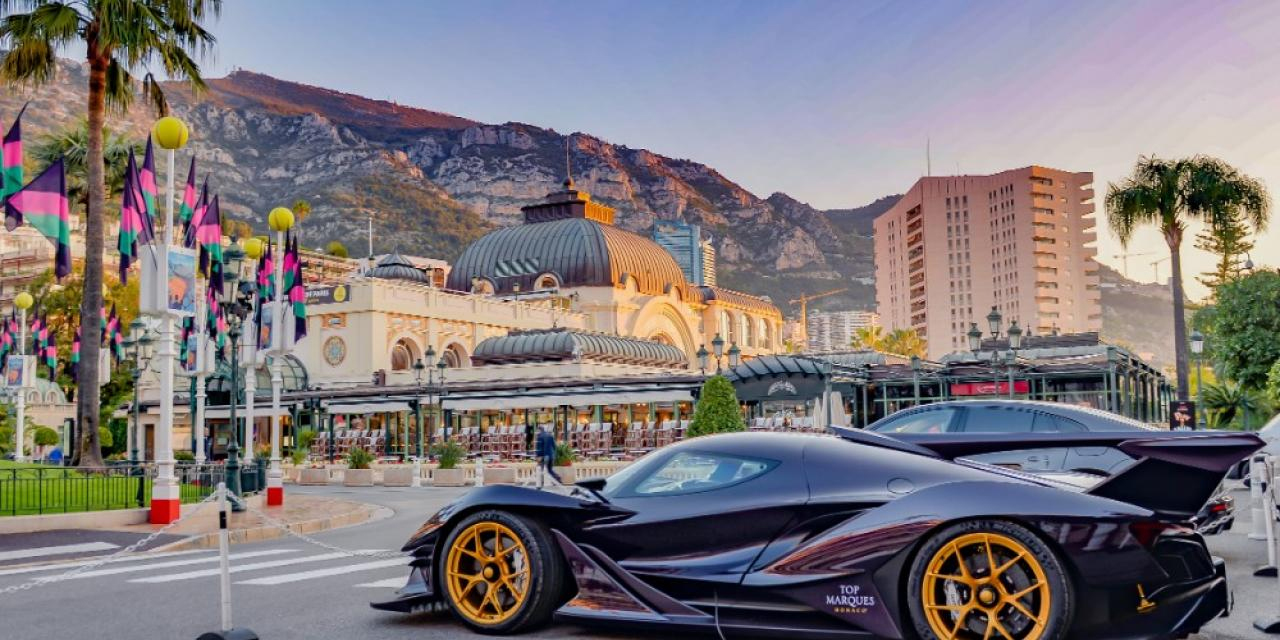An independent sovereign state located between the foot of the Southern Alps and the Mediterranean, the Principality of Monaco borders on several French villages
In ancient history, the Rock of Monaco was a shelter for primitive populations. history of Monaco itself really started in the 13th Century. On 10th June 1215, the Genoan family of the Gibelins laid the first stone of the castle, which is still today the Prince’s Palace. To attract new inhabitants, the initial masters of the Rock offered advantageous conditions to newcomers : territorial concessions, tax exemption. For 700 years, the history of Monaco has been linked to that of the Grimaldi Dynasty which has celebrated in 1997, the anniversary of its accession to the Principality of Monaco.
The official language is French, although Italian and English are widely spoken.The traditional Monegasque language, “le Monegù”, is spoken amongst elders and is taught in all local schools. The currency is Euro. Monegasque coins are used.
“Deo Juvante” (With God’s Help) is the motto of Monaco and its Princes. Catholicism is the state religion. However, freedom of worship is guaranteed by the Constitution and several religions are represented in Monaco.The National Holiday is celebrated on 19th November every year. The national telephone code for Monaco is ‘377’ and telecommunications are very efficient. Monaco prints its own stamps.
Benefiting from an ideal geographical location, the Principality of Monaco enjoys very mild winters and remarkably sunny summers, which tend not to be exceedingly hot. In fact, the results of a 60-year study show that the average temperature is 16° C, rain falls on less than 87 days per year and the sun shines 7 hours a day on average. Sea temperatures vary from 11° C in the winter to over 26° C in the middle of summer. Thanks to its Mediterranean climate, Monaco is a pleasant place to live all year round. In addition, it is worth noting that ski resorts in the Alps are only an hour’s drive away.







